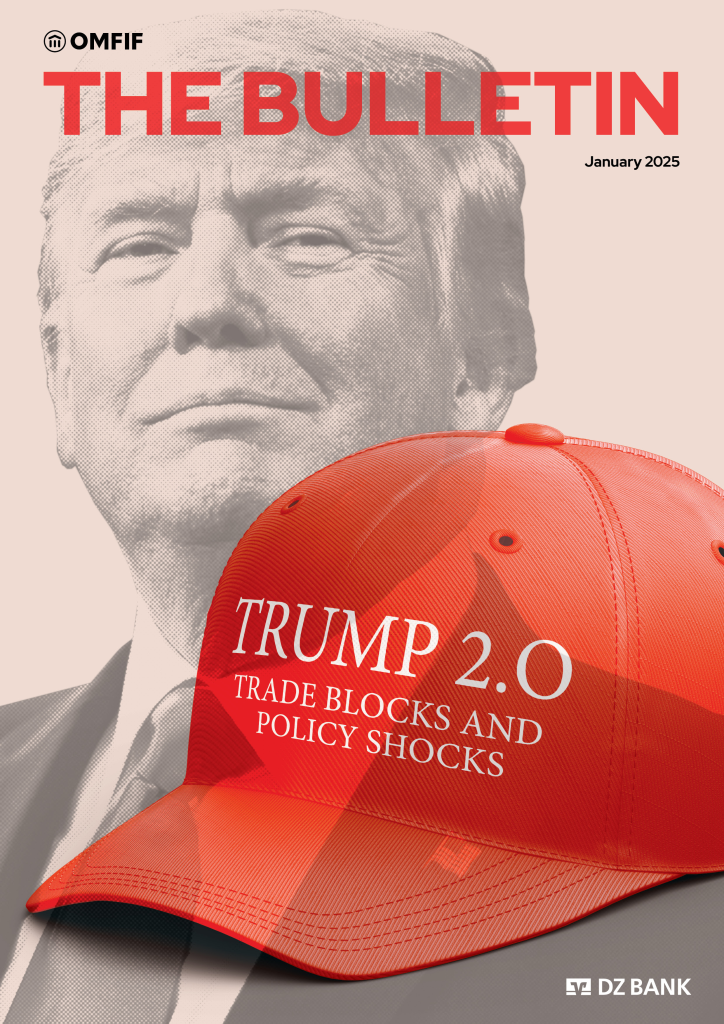
| Banks’ adoption of nature-related regulations rises across key regions |
| By Maud Abdelli |
| Governments, central banks and financial institutions around the world are becoming increasingly attuned to addressing the threats that climate change and nature loss pose to people, economies and ecosystems. From extreme weather events to dwindling supplies of natural resources, the crises demand strong policy signals and coordinated responses. Read the full commentary → |

Five implications of ‘America first’ for the global South
By Udaibir Das
The global economic and financial order stands at the precipice of a seismic shift. Within just 24 hours of the new US administration taking office, the early outlines of its vision were already signalling profound changes in how America engages with the world.

‘Our target is to regain single-A status’, says Greek debt chief
By Burhan Khadbai
Greece’s first publicly sold bond transaction in 2025 was by far the biggest statement in its journey over the past decade to regain trust and credibility with investors in the capital markets.
MEETINGS

Denmark’s economic outlook and euro area monetary policy
Tuesday 4 February, Virtual roundtable
Thomas Harr, assistant governor and head of economics and monetary policy at Danmarks Nationalbank, joins OMFIF to discuss monetary policy, economic growth and inflation in Denmark.
ON DEMAND

Turning women’s entrepreneurial potential into economic opportunity
Wendy Teleki, head of the Women Entrepreneurs Finance Initiative at the World Bank, joins Arunima Sharan, senior economist at OMFIF’s Economic and Monetary Policy Institute, to discuss how the WE Finance Code is tackling the $1.7tn financing gap facing women entrepreneurs.
LATEST REPORT

The Bulletin: January 2025
This edition of the Bulletin examines the implications of US President Donald Trump’s proposed policies, exploring how they could reshape global dynamics in an already fragile macroeconomic environment.





